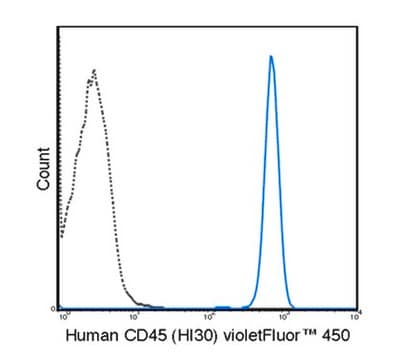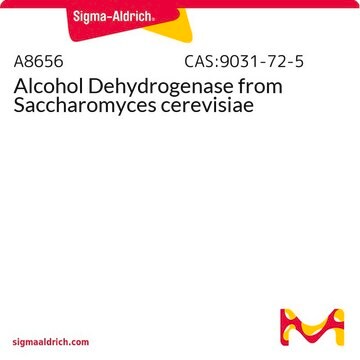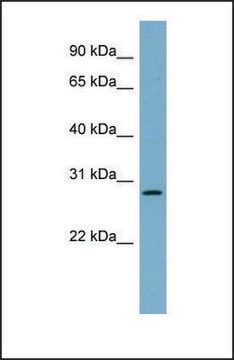05-1471
Anti-Rictor Antibody, clone 9F1.2
clone 9F1.2, from mouse
Sinónimos:
Rictor, AVO3, rapamycin-insensitive companion of mTOR, mAVO3
About This Item
Productos recomendados
biological source
mouse
Quality Level
antibody form
purified immunoglobulin
antibody product type
primary antibodies
clone
9F1.2, monoclonal
species reactivity
human, mouse, rat
technique(s)
immunoprecipitation (IP): suitable
western blot: suitable
isotype
IgG2aκ
NCBI accession no.
UniProt accession no.
shipped in
wet ice
target post-translational modification
unmodified
Gene Information
human ... RICTOR(253260)
General description
Specificity
Immunogen
Application
Representative lot data.
1 ug/mL dilution of this antibody immunoprecipitated Rictor from 100 mg of HEK293 lysate.
Quality
Target description
Physical form
Analysis Note
HEK293 cell lysate.
Western Blotting Analysis: 1 µg/mL of this antibody detected Rictor on 10 µg of HEK293 cell lysate.
Other Notes
¿No encuentra el producto adecuado?
Pruebe nuestro Herramienta de selección de productos.
Storage Class
12 - Non Combustible Liquids
wgk_germany
WGK 1
flash_point_f
Not applicable
flash_point_c
Not applicable
Certificados de análisis (COA)
Busque Certificados de análisis (COA) introduciendo el número de lote del producto. Los números de lote se encuentran en la etiqueta del producto después de las palabras «Lot» o «Batch»
¿Ya tiene este producto?
Encuentre la documentación para los productos que ha comprado recientemente en la Biblioteca de documentos.
Nuestro equipo de científicos tiene experiencia en todas las áreas de investigación: Ciencias de la vida, Ciencia de los materiales, Síntesis química, Cromatografía, Analítica y muchas otras.
Póngase en contacto con el Servicio técnico








